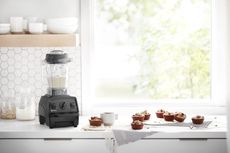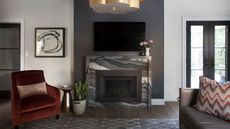Organizing a home office – maximize efficiency with these techniques
Discover the ways of organizing a home office so it’s a productive and stylish place to spend time
- (opens in new tab)
- (opens in new tab)
- (opens in new tab)
- Sign up to our newsletter Newsletter
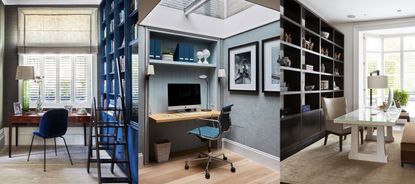

Organizing a home office effectively is a win on two counts. First of all, keeping everything from office supplies to documents ordered and quick to locate makes concentration on the tasks that need completion far easier.
But the other benefit of good organization is a clutter-free room you enjoy spending time in. As part of a home and with many of us spending long hours in home offices, an environment with a look we love is essential, and excess stuff will compromise that style.
Here, we’ve put together the best ways of arranging and ordering a home office and organizing a desk, and asked the experts to share their wisdom, too.
Organizing a home office
‘Everyone has their own idea of what the perfect home office looks like: a place where you can sit and work, create and be inspired,’ says Sarah Dunn of Get It Dunn (opens in new tab) professional organizing. ‘But having an organized office is about more than simply thinking about how it looks; if done correctly, decluttering your office can also simplify your workflow and improve your focus.’
Take a look at these ways of organizing a home office.
1. Curate the room’s contents
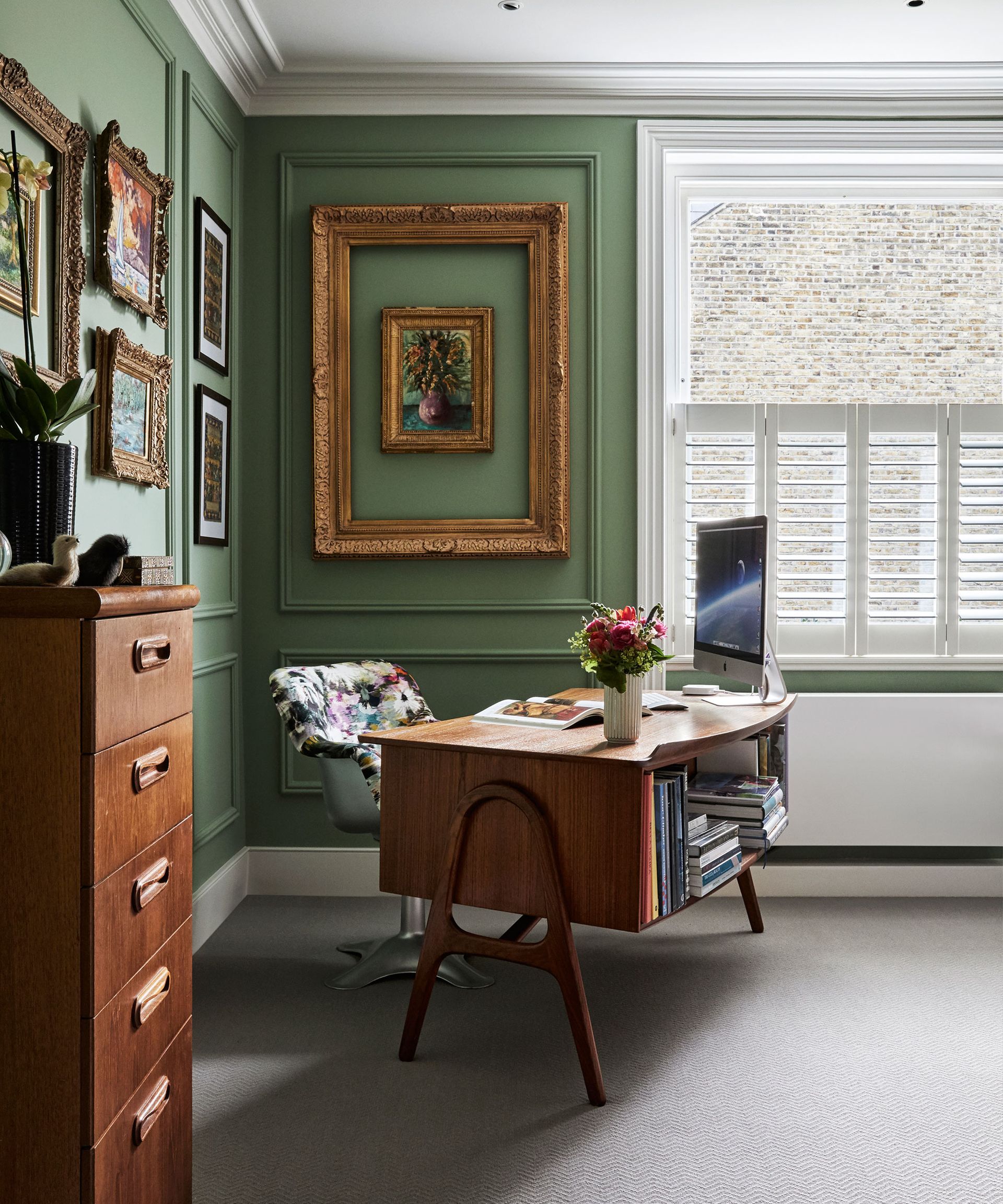
Before organizing a home office, it’s important to decide what should actually be in the room, especially if it is a small home office.
‘Make sure your office only has “office” items. It can easily become a dumping ground for other things to do,’ says Katy Winter, founder of Katy’s Organized Home (opens in new tab). This doesn’t preclude keeping what inspires and is beautiful in there, but it does mean excluding items that belong elsewhere in the home.
Take the opportunity to review all of its contents, too. ‘Get rid of anything you no longer need,’ says Sarah Dunn. ‘This includes equipment and stationery supplies that are broken or old.’
2. Zone the room for effective organization
It’s worth thinking about your home office ideas in terms of zones to arrange the space efficiently. ‘It is best to set up three main work zones for your home office, the first being a zone that you use frequently,’ suggests Jessica Samson, a cleaning expert at Maids.com (opens in new tab).
‘This zone should hold things that you use daily like files, folders, books, calendars and other office staples. Zone two should be out of the way, but easily accessible. This zone should include books, files, folders and other items that you only need occasionally. Zone three should be out of the way and include office supplies.’
3. Deal with paperwork
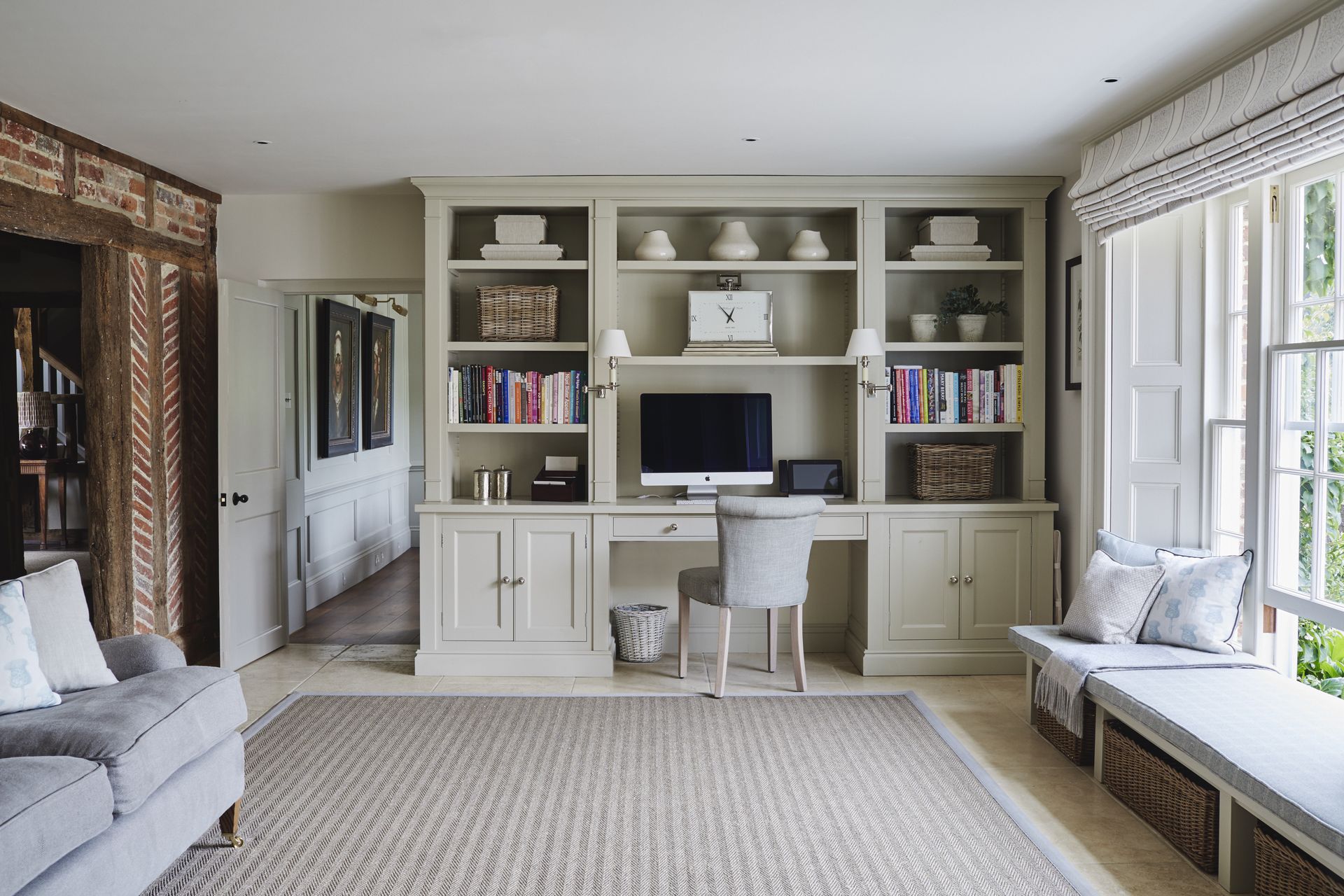
A home office frequently holds a family’s essential paperwork. ‘Your files should contain the following information: originals of your birth certificate; social security card; permanent documents you have on your child(ren); at least the past three years of your tax returns; any home-related documents, including insurance policies; any other must-have documents personal to you,’ recommends efficiency expert Jaclyn Strauss of 2nd Vault (opens in new tab). Label the file folders in which these are kept, she advises.
4. Go paperless when you can
When thinking about home office desk ideas, it’s worth considering the extent to which you can go paperless when organizing a home office. ‘A full three-drawer filing cabinet can hold up to 1,800 sheets of paper, and the goal should be not to come anywhere close to this amount in our home office,’ says Jaclyn Strauss.
‘Get in the habit of signing up for paperless options for your bills, statements, and even reading,’ suggests Laura Fenton, author of the book The Little Book of Living Small (opens in new tab). ‘Scan the documents that still come in a paper form and recycle the originals. I use the app Tiny Scanner, but there are many scanning apps.’ There are also digital tools, such as 2ndVault, that can help avoid a build-up of paperwork.
5. Neaten up the desktop
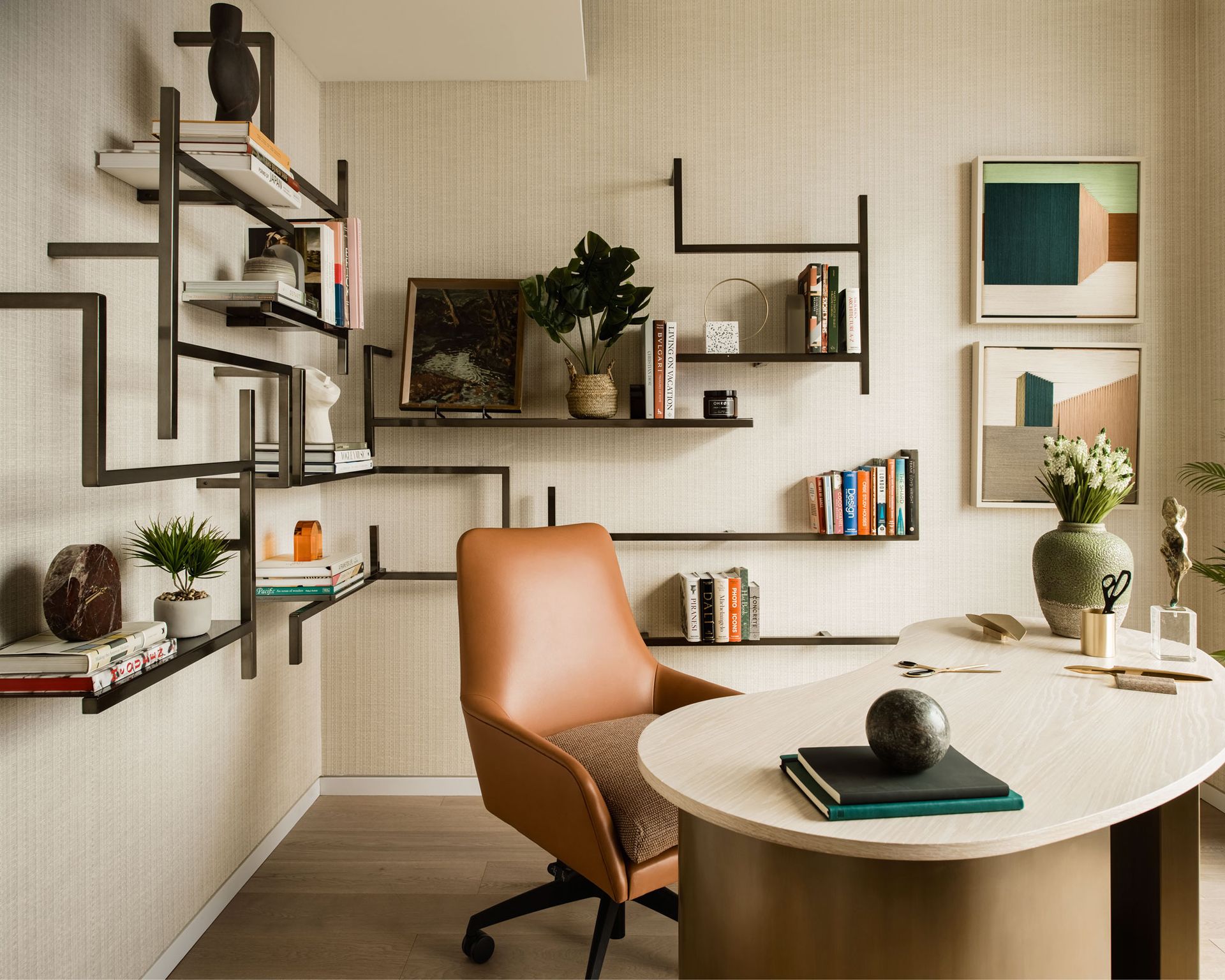
A messy home office setup and desk is distracting – and it will detract from the appearance of a home office. Keep only what’s necessary on the desktop. ‘Have either a drawer with pens, and markers or corral them in a pretty holder,’ says Brenda Scott.
For current paperwork that does need to go on the desk? ‘I suggest a horizontal desktop file holder for items that are being worked on. Separate the “urgent” into one slot and the “get to it” in another slot, or “incoming” and “outgoing”,’ Brenda recommends. ‘You can have as many stacked up desktop files as you need to keep your current work organized, then label the slots to keep everything in its proper place.’
We also advise that you make the most of your wall space. Invest in beautiful office wall decor ideas to ensure that you desk remains neat and tidy.
6. Corral office supplies
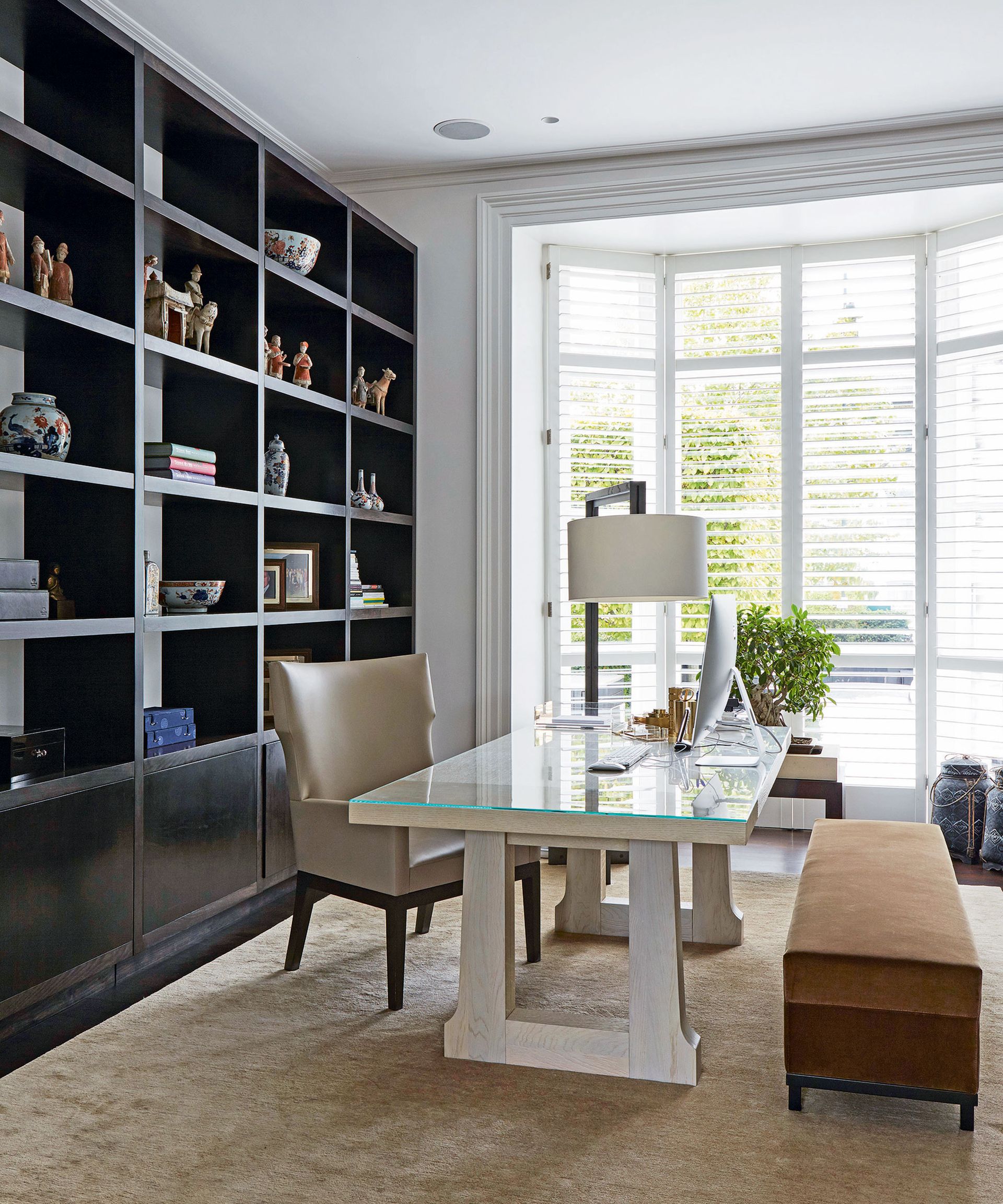
Place office supplies in a closet or cabinet within the home office. ‘Sort like items together, get rid of things you no longer need, want, use or that don’t work, contain items, and label bins, baskets or containers,’ recommends Amy Vance, owner of a Eco Modern Concierge (opens in new tab), which offers productivity consulting, professional organizing and personal assistance to businesses and individuals.
It’s tempting to bulk buy supplies, but this can cause clutter and make organizing a home office a harder task. ‘Yes, a case of paper is cheaper than buying by the single ream, but consider the space it will occupy in your home and how long it will take you to use it up,’ says Laura Fenton.
7. Think about printer locations
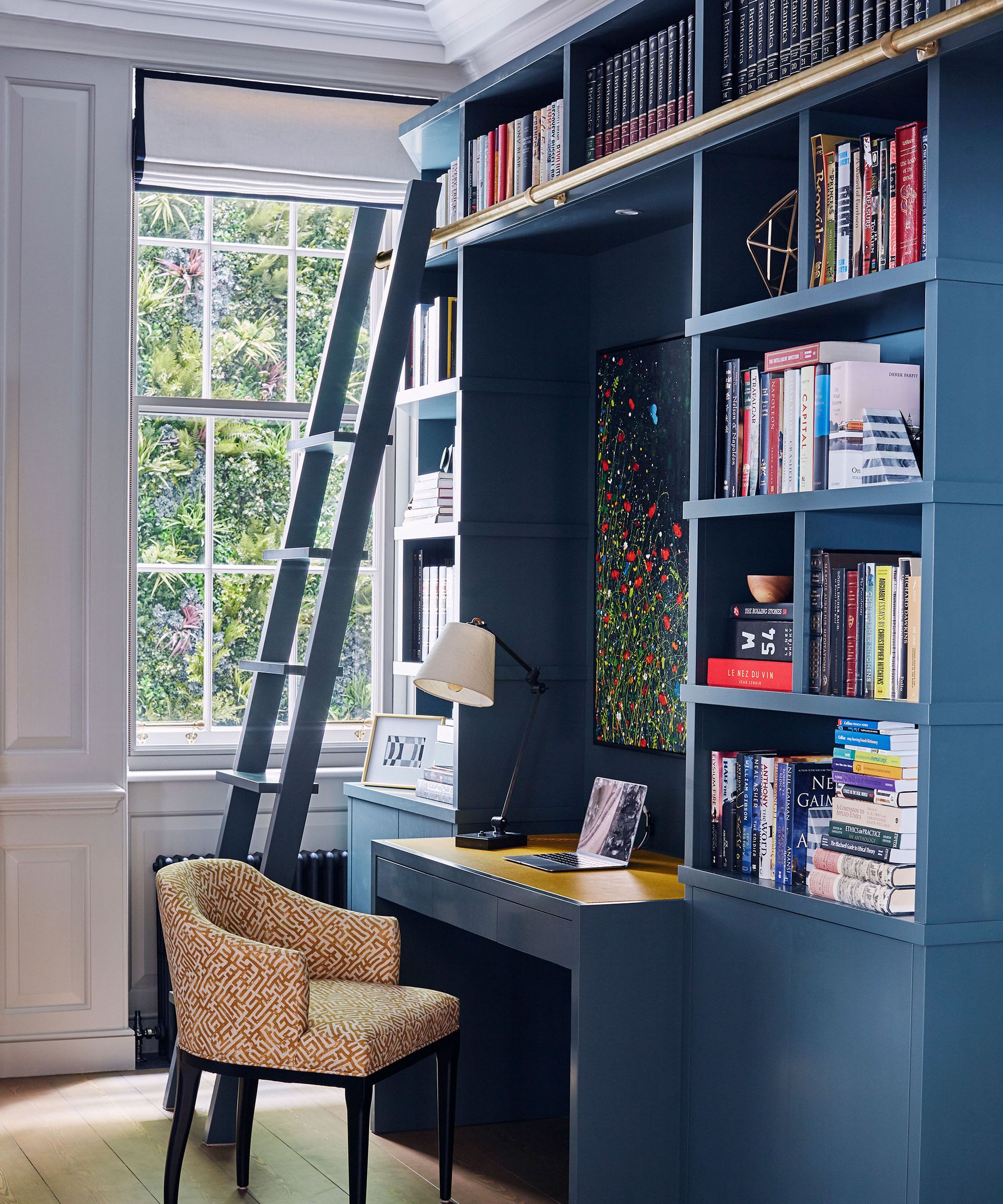
How often items such as printers and scanners are needed should be considered when organizing a home office. ‘If you use a printer or scanner frequently, make sure it is easily accessible and near your work space,’ says Anna Franklin, interior designer and founder of Stone House Collective (opens in new tab). ‘However, if you only use a printer occasionally, store it in a cabinet with easy access for when it is needed instead of displayed on a shelf out in the open.’ In this case, organizing a bookshelf with useful and favorite titles will create a more pleasing look.
Keep what goes with other tech tidy, too. ‘Use bins with lids to corral the chargers and computer accessories when not in use,’ says Pattie Kelly, certified interior decorator at Inspired Home Interiors (opens in new tab)
8. Take advantage of a desk interior
Many home office design tips and desk ideas are minimalistic in style, but for a home office with more to organize, a desk with drawers or cubbies can be a better option. The same is true of a small office where it can be difficult to accommodate sufficient pieces of furniture.
For the interior of a desk, order documents in a way that makes sense to you. ‘Some use alphabetical, others use the topic of the information in the files, for example: taxes, banking, real estate, customers, personal etc,’ says Brenda Scott.
9. Make use of open shelving
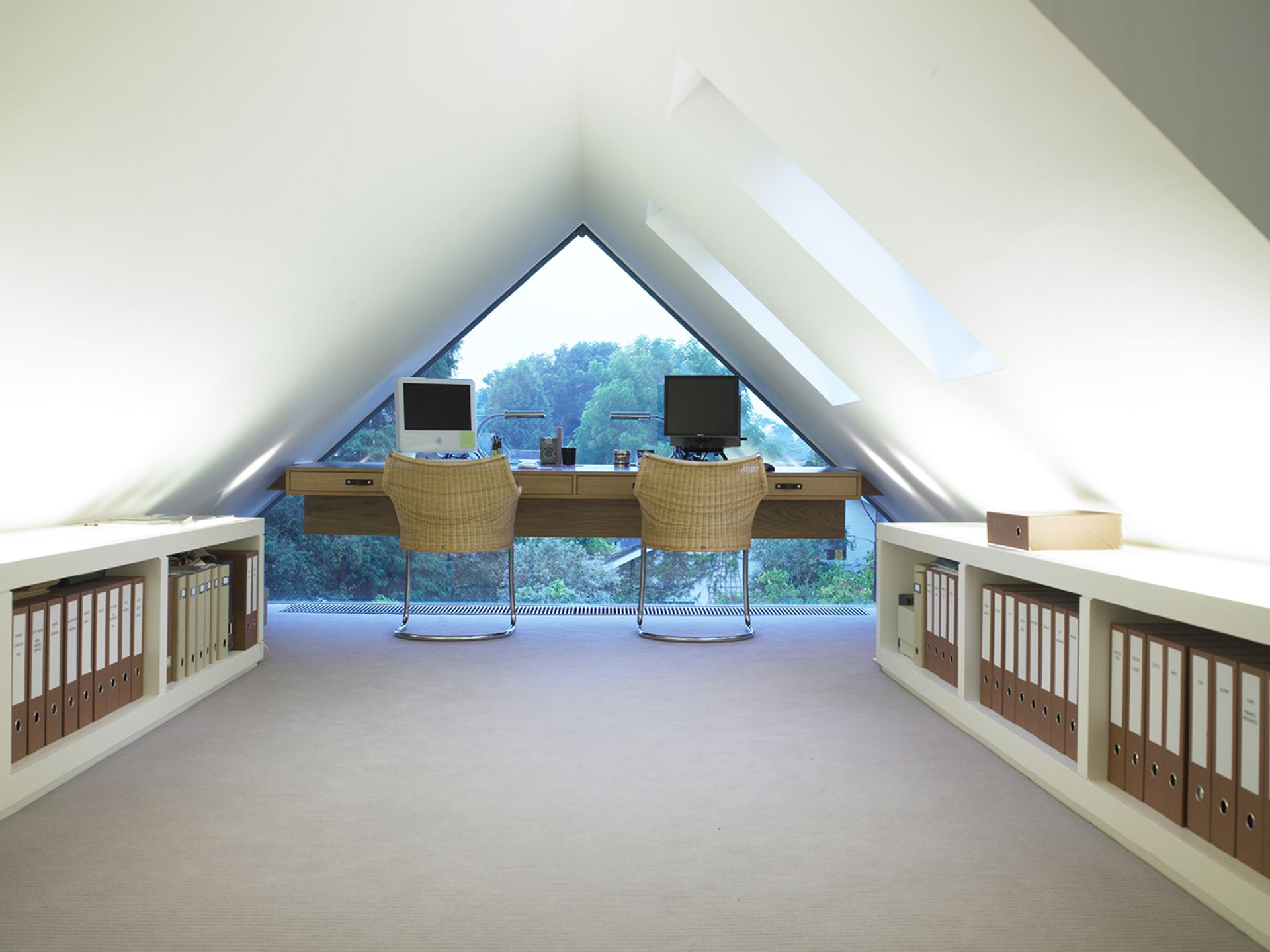
Open shelving can be a useful feature of a home office, but if it’s to be attractive, too, office necessities should be hidden in plain sight. ‘Use an aesthetically pleasing bin or basket to store printer supplies, such as additional reams of paper, printer ink, and more,’ recommends Anna Franklin.
If it’s paperwork that needs to be kept on shelves, choose matching box files to contain it to make a pleasing visual impression.
10. Maintain an ordered home office
To keep a home office clutter-free, it’s important to maintain the organization you’ve created. ‘Be mindful of what you are printing each day to avoid a paper pileup on your desk,’ advises Jaclyn Strauss.
‘Could you get the job done without having a physical copy of the document? If so, train yourself to take that approach first. If not, print it, use it, and recycle it in a bin next to your desk. If you need to retain it, file it at the end of the day ideally but if not, put a Friday afternoon calendar reminder to yourself to file what has been left on your desk that you must physically retain.’
How do you organize a small home office?
To organize a small home office, it’s important to limit what you keep there. ‘For most individuals and families, even a single filing cabinet is likely more document storage than you need. Instead, try a file box,’ suggests Laura Fenton. The same goes for office supplies, which for most people don’t need to be plentiful.
Make sure to keep up with paperwork, recycling or shredding as applicable, and only retaining what needs attention or is imperative to stash.
Keep the contents of the room neat, too. ‘Utilize bins, baskets and zippered pouches for when you need to tuck items away,’ says Anna Franklin.
How do you organize a home office for maximum productivity?
The way to organize a home office for maximum productivity is to declutter first, then gather what you need. ‘Create a place for everything and make it a habit to put everything back in its place at the end of each workday. This sets you up for success the next day and helps you change gears from work to home life,’ says Pattie Kelly.
What’s equally crucial is to arrange and order a home office on an individual level. ‘Set it up for how it works for your day to day usage,’ advises Brenda Scott. ‘Some things may feel awkward if you’re right handed and the item is on the left side of the desk.’

Sarah is a freelance journalist and editor. Previously executive editor of Ideal Home, she’s specialized in interiors, property and gardens for over 20 years, and covers interior design, house design, gardens, and cleaning and organizing a home for H&G. She’s written for websites, including Houzz, Channel 4’s flagship website, 4Homes, and Future’s T3; national newspapers, including The Guardian; and magazines including Future’s Country Homes & Interiors, Homebuilding & Renovating, Period Living, and Style at Home, as well as House Beautiful, Good Homes, Grand Designs, Homes & Antiques, LandLove and The English Home among others. It’s no big surprise that she likes to put what she writes about into practice, and is a serial house renovator.
-
-
 Vitamix E310 Explorian Blender review: is Vitamix's basic blender worth it?
Vitamix E310 Explorian Blender review: is Vitamix's basic blender worth it?We put the Vitamix E310 Explorian to the test to see if this entry-level blender is as good as the rest of the brand
By Helen McCue • Published
-
 Super Bowl party checklist – everything you need to get ready for the big game
Super Bowl party checklist – everything you need to get ready for the big gameGet ready for game day with the ultimate Super Bowl Party checklist
By Zara Stacey • Published
